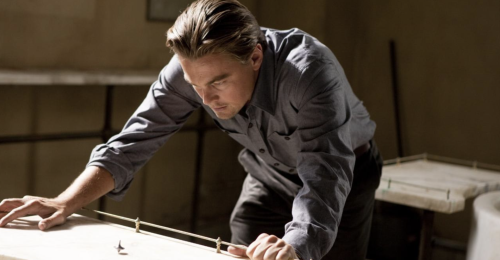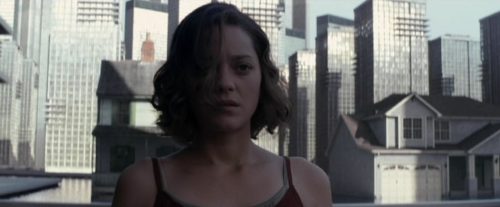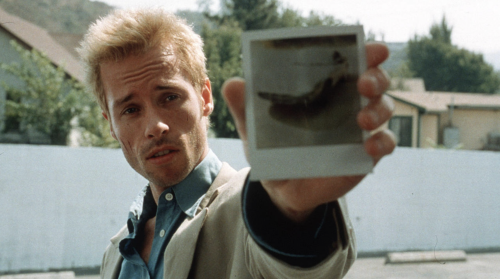E.e. Cummings, From “in Time Of Daffodils(who Know” (in 95 Poems), Complete Poems: 1904-1962

e.e. cummings, from “in time of daffodils(who know” (in 95 Poems), Complete Poems: 1904-1962
[Text ID: “In time of daffodils(who know the goal of living is to grow)”]
More Posts from Autumnal-hues and Others
In another universe, my mom doesn’t get married off into this mockery of a family. Her youth doesn’t get over even before she has the chance to feel it. Her ankles aren’t bound by chains. I’m never born. She is free. She is happy.
No but you all don't understand there were times I kept going through the day on the basis of the sole reminder that I would watch Lionel Messi play at night. That guy saved my life.
Rewatched The Good Place for the first time since s4 dropped and. Oh my god. The Good Place said "people are a result of their environment but we always have a moral responsibility to be better" and The Good Place said "every day the world gets a little more complicated and it gets a little harder to be good" and The Good Place said "even in the face of total nihilism, when nothing you do will matter, you still have to at least try. Because trying is better than the alternative" and The Good Place said "if you have bills to pay and shit to deal with you don't have time or energy to become a better person" and then The Good Place really said "people get better when they get external love and support. How can we hold it against them when they don't " and THEN The Good Place really said "no one is irredeemable. Everyone can try to be better today than they were yesterday" AND THEN! The Good Place said "Heaven is just enough time with the people that you love" OH MY FUCKING GOD.
the fact that we only have “herculean task” and “sisyphean task” feels so limiting. so here’s a few more tasks for your repertoire
icarian task: when you have a task you know you’re going to fail at anyways, so why not have some fun with it before it all comes crashing down
cassandrean task: when you have to deal with people you KNOW won’t listen to you, despite having accurate information, and having to watch them fumble about when you told them the solution from the start (most often witnessed in customer service)
feel free to chime in i ran out of ideas much faster than i anticipated










- love in the mundane
warsh_tippy and zelda- whatever, dad/ minari/ new years day- taylor swift/ @death-born-aphrodite/ stay, stay, stay- taylor swift/ everything, everywhere, all at once/ i will- mitski/ @death-born-aphrodite/ fleabag/ sweet nothing- taylor swift
When Everything Everywhere All at Once said “The only thing I do know is that we have to be kind. Please, be kind, especially when we don’t know what’s going on"
When the Good Place said "Why choose to be good every day when there is no guaranteed reward now or in the afterlife… I argue that we choose to be good because of our bonds with other people and our innate desire to treat them with dignity. Simply put, we are not in this alone.”
When Jean-Paul Sartre said ”‘Hell is other people’ is only one side of the coin. The other side, which no one seems to mention, is also 'Heaven is each other’. Hell is separateness, uncommunicability, self-centeredness, lust for power, for riches, for fame. Heaven on the other hand is very simple, and very hard: caring about your fellow beings.“
Christopher Nolan: The Man Who Wasn’t There by Daniel Carlson

1.
So, we’ll start with the fact that all movies are make-believe. It’s a bunch of actors on a set, wearing costumes and standing with props picked out by hordes of people you’ll never see, under the guidance of a director, saying things that have been written down for them while doing their best to say these things so that it sounds like they’re just now thinking of them. We all know this—saying it feels incredibly stupid, like pointing out that water is wet—but it’s still worth noting. There is, for example, no such person as Luke Skywalker. Never has been, never will be. He was invented by a baby boomer from Modesto. He is not real.
And we know this, and that’s part of the fun. We know that Luke Skywalker isn’t real but is being portrayed by an actor (another boomer from the Bay Area, come to think of it), and that none of the things we’re seeing are real. But we give ourselves over to the collective fiction for the greater experience of becoming involved in a story. This is one of the most amazing things that we do as humans. We know—deep down, in our bones, without-a-doubt know—that the thing we’re watching is fiction, but we enter a state of suspended reality where we imagine the story to be real, and we allow ourselves to be moved by it. We’ve been doing this since we developed language. The people telling these stories know this and bring the same level of commitment and imagination and assurance that we do as viewers, too. The storyteller knows that the story isn’t real, but for lack of a better way to get a handle on it, it feels real. So, to continue with the example, we’re excited when Luke Skywalker blows up the Death Star because he helped the good guys win. For us viewers, in this state of mutually reinforced agreement, that “happened.” It’s not real, but it’s “real”—that is, it’s real within the established boundaries of the invented world that we’ve all agreed to sit and look at for a couple of hours. Every viewer knows this, and every filmmaker acts on it, too. Except:
Christopher Nolan does not do this.
2.

There’s no one single owner or maker of any movie, and anyone who tells you different has their hand in your pocket. But there’s an argument to be made that when somebody both writes and directs the movie, it’s a bit easier to locate a sense of personhood in the final product. (This is all really rough math, too, and should not be used in court.) Christopher Nolan has directed 11 films to date, and while his style can be found in all of them, his self is more present in the ones where he had a hand in the shaping of the story—and crucially, not just that, but in the construction of the fictional world. Take away the superhero trilogy, the remake of a Norwegian thriller, the adaptation of a novel, and the historical drama, and Nolan’s directed five films that can reasonably be attributed to his own creative universe: Following (1998), Memento (2000), Inception (2010), Interstellar (2014), and Tenet (2020). These movies all involve themes that Nolan seems to enjoy working with no matter the source material, including identity, memory, and how easily reality can be called into question when two people refuse to concede that they had very different experiences of the same event. Basically, he makes movies about how perception shapes existence. How he does this, though, is unlike pretty much everybody else.
Take Inception. After a decade spent going from hotshot new talent to household name (thanks to directing the two highest-grossing Batman movies ever made, as well as the first superhero movie to earn an Oscar for acting), he had the credit line to make something big and flashy that was also weird and personal. So we got an action movie that, when first announced in the Hollywood trades, was described as being set within “the architecture of the mind.” Although this at first seemed to be a phrase that only a publicist could love, it turned out to be the best way to describe the film. This is a film, after all, about a group of elite agents who use special technology to enter someone’s subconscious dream-state and then manipulate that person’s memories and emotions. The second half of the film sees team leader Dom Cobb (Leonardo DiCaprio) and the rest of the squad actually descend through multiple nested subconsciouses to achieve their goal, even as they’re chased every step of the way by representations of Mal (Marion Cotillard), Dom’s late wife, who committed suicide after spending too much time in another’s subconscious and lost the ability to discern whether she was really alive or still in the dream-world.
I say “representations” because that’s what they are: Mal is long dead, but Dom still feels enormous guilt over his complicity in her actions, and that guilt shows up looking like Mal, whose villainous actions (the representation’s actions, that is) are just more signs of Dom not being able to come to grips with his own past. It’s his own brain making these things up and attacking itself, and it chases his entire crew down three successive layers of dream worlds. You get caught up in the movie’s world as a viewer, and you go along because Nolan is pretty good at making exciting movies that feel like theme-park rides. You accept that Dom and everybody else refer to Mal as Mal and not, say, Dom. Dom even addresses her (“her”) when her projection shows up, speaking to her as if she’s a separate being with her own will and desires and not a puppet that he’s pretending not to know he’s controlling. It’s only later that you realize that the movie is in some ways just a big-budget rendition of what it would look like to really, really want to avoid therapy.
Which is what makes Nolan different from other filmmakers:
None of this is actually happening.
Again, yes, it’s happening in the sense that we see things on screen—explosions, chases, a fight scene in a rotating hallway that’s still some of the best practical-effects work in modern action movies—but within the universe of the film, none of what’s going on is taking place in the real world. It’s all unfolding in the subconsciouses of Dom’s teammates. In the movie’s real world, they’re all asleep on a luxury jet. They’re “doing” things that have an outcome on the plot, but Nolan sets more than half the movie inside dreams. It’s a movie about reality where we spend less time in reality than in fantasy. Half the movie is pretend.
For Nolan, filmmaking is about using a dazzling array of techniques to create a visual spectacle that distracts the viewer from the fact that the real and true story is happening somewhere else: in the fringes we can’t quite see, in the things we forget to remember, or even in the realm of pure speculation.
3.

Keep reading


I Am Not Your Negro, dir. Raoul Peck (2016) (via lunamonchtuna)














On Love As An Ending.
reworked my second ever webweave because it is genuinely such a mess. it looks much more cohesive now.
Dogfish, Mary Oliver | Like Real People Do, Hozier | The Spring Flowers Own & The Manifestations of the Voyage, Etel Adnan | The Awakening, Joseph M. Martin | War of the Foxes, Richard Siken | Citizen Illegal, José Olivarez | Flowers, Hadestown | End Poem, Julian Gough | I Worried, Mary Oliver | Goodbye, The Altogether | These Violent Delights, Micah Nemerever | Alexandria Burning, Everybody’s Worried About Owen | Dogfish, Mary Oliver (cont.) | What I Could Never Confess Without Some Bravado, Emily Palermo
[text transcribed in alt text]

The Palm Beach Post, Florida, November 30, 1942
-
 muneersecstasy liked this · 2 weeks ago
muneersecstasy liked this · 2 weeks ago -
 elizabethdolly reblogged this · 2 weeks ago
elizabethdolly reblogged this · 2 weeks ago -
 v837-y reblogged this · 2 weeks ago
v837-y reblogged this · 2 weeks ago -
 v837-y liked this · 2 weeks ago
v837-y liked this · 2 weeks ago -
 wizardarchetypes liked this · 2 weeks ago
wizardarchetypes liked this · 2 weeks ago -
 nerd-facedhuman liked this · 2 weeks ago
nerd-facedhuman liked this · 2 weeks ago -
 athenasdragon liked this · 2 weeks ago
athenasdragon liked this · 2 weeks ago -
 razbb reblogged this · 2 weeks ago
razbb reblogged this · 2 weeks ago -
 razbb reblogged this · 2 weeks ago
razbb reblogged this · 2 weeks ago -
 razbb reblogged this · 2 weeks ago
razbb reblogged this · 2 weeks ago -
 queenofzan reblogged this · 2 weeks ago
queenofzan reblogged this · 2 weeks ago -
 goingthroughlife00 liked this · 2 weeks ago
goingthroughlife00 liked this · 2 weeks ago -
 inkprilled liked this · 2 weeks ago
inkprilled liked this · 2 weeks ago -
 heads-or-tayls liked this · 3 weeks ago
heads-or-tayls liked this · 3 weeks ago -
 miralparis reblogged this · 3 weeks ago
miralparis reblogged this · 3 weeks ago -
 nicholasthepoetist liked this · 3 weeks ago
nicholasthepoetist liked this · 3 weeks ago -
 ltbelanna reblogged this · 3 weeks ago
ltbelanna reblogged this · 3 weeks ago -
 mrphatman reblogged this · 3 weeks ago
mrphatman reblogged this · 3 weeks ago -
 mrphatman liked this · 3 weeks ago
mrphatman liked this · 3 weeks ago -
 draculafemme liked this · 3 weeks ago
draculafemme liked this · 3 weeks ago -
 miftahhh liked this · 3 weeks ago
miftahhh liked this · 3 weeks ago -
 doorfus reblogged this · 3 weeks ago
doorfus reblogged this · 3 weeks ago -
 inbetweenletters reblogged this · 3 weeks ago
inbetweenletters reblogged this · 3 weeks ago -
 softsweetblue reblogged this · 3 weeks ago
softsweetblue reblogged this · 3 weeks ago -
 sweetjellyfish liked this · 3 weeks ago
sweetjellyfish liked this · 3 weeks ago -
 teldrassils reblogged this · 3 weeks ago
teldrassils reblogged this · 3 weeks ago -
 beforeitwastoolate liked this · 4 weeks ago
beforeitwastoolate liked this · 4 weeks ago -
 nybagels reblogged this · 4 weeks ago
nybagels reblogged this · 4 weeks ago -
 preyedking reblogged this · 4 weeks ago
preyedking reblogged this · 4 weeks ago -
 elltheblue liked this · 4 weeks ago
elltheblue liked this · 4 weeks ago -
 another-los3r reblogged this · 4 weeks ago
another-los3r reblogged this · 4 weeks ago -
 namelesssovereignofscormites reblogged this · 4 weeks ago
namelesssovereignofscormites reblogged this · 4 weeks ago -
 ratnumber-3 liked this · 4 weeks ago
ratnumber-3 liked this · 4 weeks ago -
 wellshameful reblogged this · 4 weeks ago
wellshameful reblogged this · 4 weeks ago -
 senatormellies reblogged this · 4 weeks ago
senatormellies reblogged this · 4 weeks ago -
 devpaatel liked this · 4 weeks ago
devpaatel liked this · 4 weeks ago -
 mltfndmpenguin liked this · 4 weeks ago
mltfndmpenguin liked this · 4 weeks ago -
 lyrasoxford liked this · 4 weeks ago
lyrasoxford liked this · 4 weeks ago -
 oscarisaacss-wp liked this · 4 weeks ago
oscarisaacss-wp liked this · 4 weeks ago -
 namelesssovereignofscormites reblogged this · 4 weeks ago
namelesssovereignofscormites reblogged this · 4 weeks ago -
 midnightconfessions liked this · 4 weeks ago
midnightconfessions liked this · 4 weeks ago -
 taweretsdagger reblogged this · 4 weeks ago
taweretsdagger reblogged this · 4 weeks ago -
 sscullysglasses reblogged this · 4 weeks ago
sscullysglasses reblogged this · 4 weeks ago -
 rosamundpkes reblogged this · 4 weeks ago
rosamundpkes reblogged this · 4 weeks ago -
 charlieandlolacow reblogged this · 4 weeks ago
charlieandlolacow reblogged this · 4 weeks ago -
 charlieandlolacow liked this · 4 weeks ago
charlieandlolacow liked this · 4 weeks ago -
 somnolentstardust liked this · 4 weeks ago
somnolentstardust liked this · 4 weeks ago -
 wasteddreamss liked this · 4 weeks ago
wasteddreamss liked this · 4 weeks ago -
 desdaemon liked this · 4 weeks ago
desdaemon liked this · 4 weeks ago -
 issy0562 liked this · 1 month ago
issy0562 liked this · 1 month ago

She/her | 20 | Mostly failing to "hold my balance on this spinning crust of soil."
108 posts